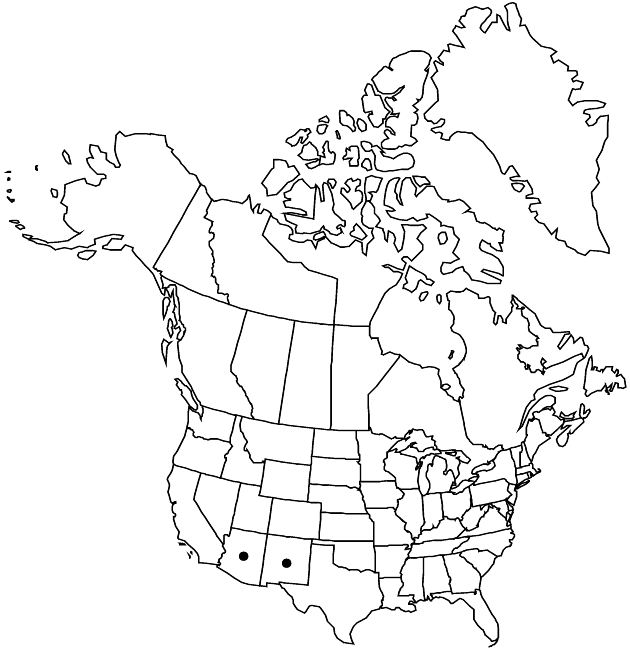Difference between revisions of "Hieracium pringlei"
Proc. Amer. Acad. Arts 19: 69. 1883.
FNA>Volume Importer |
FNA>Volume Importer |
||
| Line 31: | Line 31: | ||
-->{{#Taxon: | -->{{#Taxon: | ||
name=Hieracium pringlei | name=Hieracium pringlei | ||
| − | |||
|authority=A. Gray | |authority=A. Gray | ||
|rank=species | |rank=species | ||
| Line 46: | Line 45: | ||
|publication year=1883 | |publication year=1883 | ||
|special status= | |special status= | ||
| − | |source xml=https://jpend@bitbucket.org/aafc-mbb/fna-data-curation.git/src/ | + | |source xml=https://jpend@bitbucket.org/aafc-mbb/fna-data-curation.git/src/eaa6e58056e40c9ef614d8f47aea294977a1a5e9/coarse_grained_fna_xml/V19-20-21/V19_409.xml |
|tribe=Asteraceae tribe Cichorieae | |tribe=Asteraceae tribe Cichorieae | ||
|genus=Hieracium | |genus=Hieracium | ||
Revision as of 19:19, 16 December 2019
Plants 20–45+ cm. Stems proximally usually piloso-hirsute (or lanate, hairs 5–8+ mm, usually curled and tangled), sometimes nearly glabrous, distally piloso-hirsute (hairs 1–2+ mm) and stellate-pubescent. Leaves: basal (2–)3–8+, cauline (0–)3+; blades elliptic or spatulate to oblanceolate, lanceolate, or lance-linear, (35–)50–120(–200+) × 10–25(–40+) mm, lengths 2–5(–10+) times widths, bases ± cuneate, margins usually entire, rarely toothed, apices obtuse to acute, faces (proximal leaves) piloso-hirsute (to lanate, hairs 1–3+ mm; distal leaves often ± glabrate). Heads 3–12(–20+) in corymbiform arrays. Peduncles usually stellate-pubescent and stipitate-glandular. Calyculi: bractlets 3–5+. Involucres campanulate, (7–)8–9 mm. Phyllaries 12–15+, apices rounded to acute, abaxial faces stellate-pubescent and/or stipitate-glandular. Florets 12–15+; corollas yellow, 7–9 mm. Cypselae columnar, 2.2–4 mm; pappi of (40–)60–80, white or stramineous bristles in 2+ series, 4–5+ mm.
Phenology: Flowering Jul–Aug.
Habitat: Pine, oak, and pine-oak forests
Elevation: 2000–2300 m
Distribution

Ariz., N.Mex., Mexico, Central America (Guatemala).
Discussion
Selected References
None.